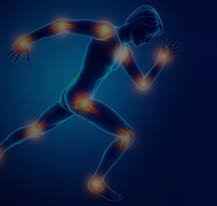Sports Medicine
Key Areas of Sports Medicine
1. Injury Prevention
Warm-Up and Cool-Down: Proper warm-up and cool-down routines are essential to prepare the body for physical activity and reduce the risk of injuries.
Protective Gear: Using appropriate equipment like helmets, pads, and braces helps prevent injuries.
Training Programs: Tailored training programs improve strength, flexibility, and endurance, reducing the likelihood of injuries.
Education: Athletes are educated about proper techniques, body mechanics, and the importance of rest and recovery.
2. Diagnosis and Treatment
Acute Injuries: These include sprains, strains, fractures, and dislocations. Immediate and appropriate care is crucial for recovery.
Overuse Injuries: Conditions like tendinitis and stress fractures result from repetitive stress. Early diagnosis and intervention are key to preventing chronic issues.
Sports-Specific Injuries: Certain sports have common injuries, such as ACL tears in soccer players or rotator cuff injuries in baseball pitchers. Specialized knowledge is essential for effective treatment.
Advanced Imaging: Techniques like MRI, CT scans, and ultrasound are used to accurately diagnose injuries.
3. Rehabilitation
Physical Therapy: Customized exercise programs help restore function, improve mobility, and strengthen muscles after an injury.
Manual Therapy: Techniques like massage, joint mobilization, and manipulation aid in recovery.
Electrotherapy: Modalities such as ultrasound, electrical stimulation, and laser therapy are used to reduce pain and promote healing.
Functional Training: Exercises that mimic sports-specific movements help athletes return to their activities safely and effectively.
4. Performance Enhancement
Strength and Conditioning: Tailored programs improve athletic performance, strength, and endurance.
Nutrition: Proper diet and hydration are crucial for optimal performance and recovery. Sports nutritionists provide personalized plans.
Psychological Support: Mental health is vital for athletes. Sports psychologists help with goal setting, stress management, and motivation.
Technology: Wearable devices and apps track performance metrics, helping athletes and coaches make data-driven decisions.
Common Sports Injuries
1. Sprains and Strains
Sprains: Ligament injuries, commonly in the ankle, knee, and wrist.
Strains: Muscle or tendon injuries, often affecting the hamstrings, quadriceps, and back.
2. Fractures
Stress Fractures: Small cracks in bones due to repetitive stress.
Acute Fractures: Sudden breaks usually caused by impact or trauma.
3. Dislocations
Joint Dislocations: When bones are forced out of their normal positions, commonly occurring in the shoulder and fingers.
4. Tendonitis
Inflammation: Caused by overuse, commonly affecting the Achilles tendon, patellar tendon, and elbow.
5. Concussions
Head Injuries: Resulting from impacts to the head, requiring immediate medical attention and proper management.
The Role of Sports Medicine Professionals
1. Sports Physicians
Diagnose and treat sports-related injuries.
Provide medical care during sports events.
2. Physical Therapists
Develop rehabilitation programs.
Guide athletes through recovery exercises.
3. Athletic Trainers
Provide immediate care for injuries.
Design injury prevention programs.
4. Sports Psychologists
Support mental health and performance.
Teach coping strategies for pressure and stress.
5. Nutritionists
Create nutrition plans tailored to athletic needs.
Educate on proper hydration and dietary choices.
Conclusion
Sports medicine plays a crucial role in ensuring athletes perform at their best while minimizing the risk of injuries. By integrating injury prevention strategies, advanced diagnostic techniques, personalized rehabilitation programs, and performance enhancement methods, sports medicine professionals help athletes of all levels achieve their goals and maintain their health. Whether you're a professional athlete or a weekend warrior, embracing the principles of sports medicine can lead to a more active, injury-free lifestyle.
Enhancing Athletic Performance and Preventing Injuries
Introduction to Sports Medicine


Sports medicine is a specialized field of healthcare focused on the prevention, diagnosis, treatment, and rehabilitation of injuries related to sports and exercise. It aims to enhance athletic performance, promote physical fitness, and ensure the overall well-being of athletes and active individuals.
All Rights Reserved @
www.doctoruday.in


Follow us on :
Powered by
